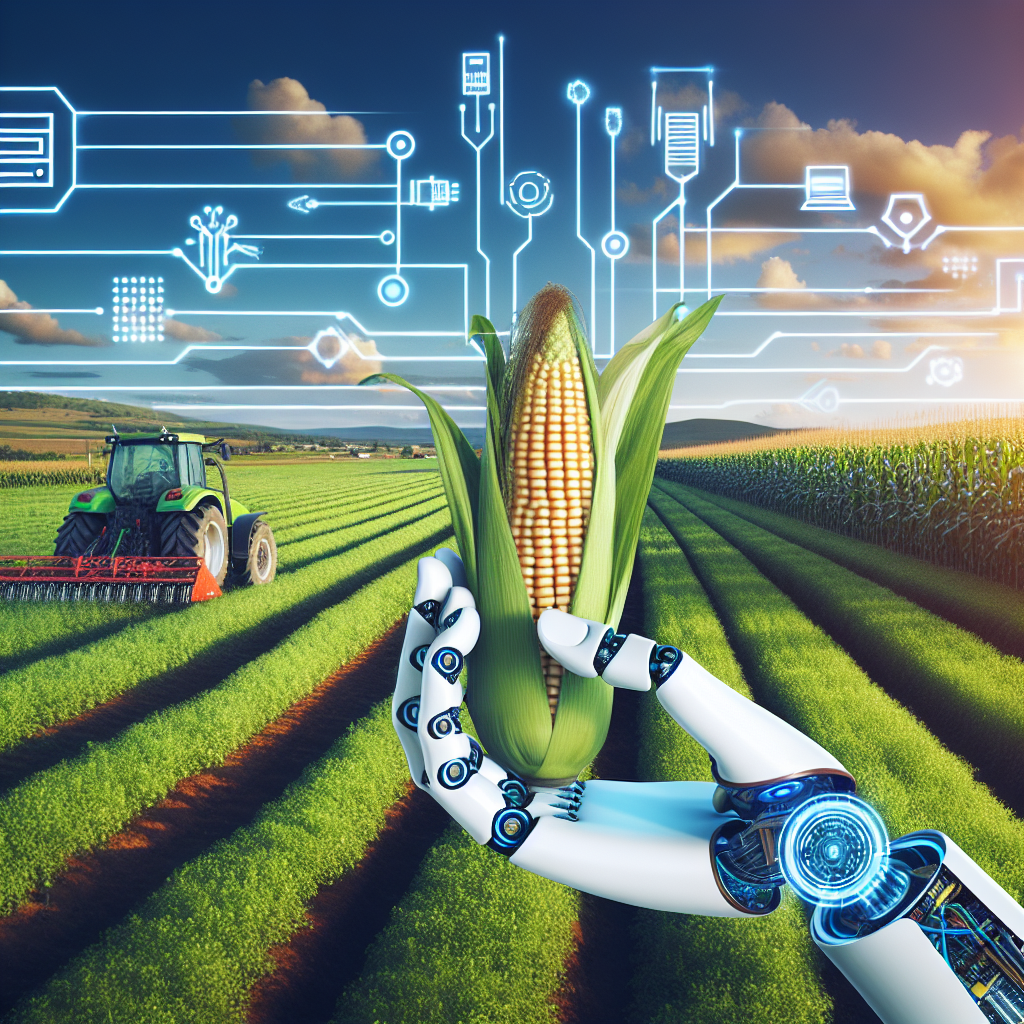Artificial Intelligence (AI) has been revolutionizing various industries, and agriculture is no exception. With the growing global population and the increasing demand for food production, farmers are looking towards AI tools to help them optimize their processes, increase efficiency, and improve their yields. From crop monitoring to pest control, AI tools are transforming the way farmers work and revolutionizing the agricultural sector.
One of the key benefits of using AI tools in agriculture is the ability to collect and analyze vast amounts of data. Through sensors, drones, and satellites, farmers can gather real-time information about their crops, soil quality, weather conditions, and more. This data can then be analyzed using AI algorithms to provide insights and recommendations on how to improve crop yields, reduce water usage, and increase overall productivity.
AI tools can also help farmers in the decision-making process. By using predictive analytics, farmers can anticipate potential issues such as pest outbreaks or disease outbreaks and take proactive measures to mitigate these risks. This can help farmers save time and resources by addressing problems before they become widespread.
Another area where AI tools are making a significant impact is in precision agriculture. By using AI-powered robots and drones, farmers can precisely target specific areas of their fields with fertilizers, pesticides, or water. This not only reduces waste and environmental impact but also improves crop yields and quality. AI-powered robots can also help with tasks such as planting, weeding, and harvesting, reducing the need for manual labor and increasing efficiency.
AI tools can also be used for crop monitoring and disease detection. By analyzing images taken by drones or satellites, AI algorithms can detect early signs of diseases or nutrient deficiencies in crops. This allows farmers to take immediate action to prevent the spread of diseases and improve crop health.
In addition to crop monitoring, AI tools can also be used for weed detection and control. By using machine learning algorithms, farmers can train AI models to identify different types of weeds and develop targeted strategies for weed control. This can help farmers reduce the use of herbicides and improve the overall sustainability of their operations.
AI tools can also help farmers optimize their irrigation practices. By using AI-powered sensors, farmers can monitor soil moisture levels and weather conditions in real-time and adjust their irrigation schedules accordingly. This can help farmers reduce water usage, improve crop yields, and minimize water runoff and waste.
Overall, the potential of AI tools in agriculture and farming is immense. From data analytics to precision agriculture, AI tools are transforming the way farmers work and helping them improve their productivity, efficiency, and sustainability. As the technology continues to evolve, we can expect to see even more innovative applications of AI in agriculture in the near future.
FAQs:
1. What are some examples of AI tools used in agriculture?
Some examples of AI tools used in agriculture include drones, sensors, robots, and machine learning algorithms. These tools can be used for crop monitoring, pest control, precision agriculture, irrigation optimization, and more.
2. How can AI tools help farmers improve their crop yields?
AI tools can help farmers improve their crop yields by providing real-time data and insights on soil quality, weather conditions, and crop health. By using this information, farmers can make informed decisions on how to optimize their processes and increase productivity.
3. Are AI tools expensive to implement in agriculture?
While some AI tools can be expensive to implement, the long-term benefits of using these tools often outweigh the initial costs. By improving efficiency, increasing yields, and reducing waste, AI tools can help farmers save time and resources in the long run.
4. Are there any potential drawbacks to using AI tools in agriculture?
Some potential drawbacks of using AI tools in agriculture include data privacy concerns, reliance on technology, and the need for specialized training. It is important for farmers to carefully consider these factors and ensure that they have the necessary support and resources to implement AI tools effectively.
5. What is the future of AI in agriculture?
The future of AI in agriculture is bright, with ongoing advancements in technology and innovation. We can expect to see even more sophisticated AI tools being developed to help farmers improve their processes, increase efficiency, and enhance sustainability in the coming years.

